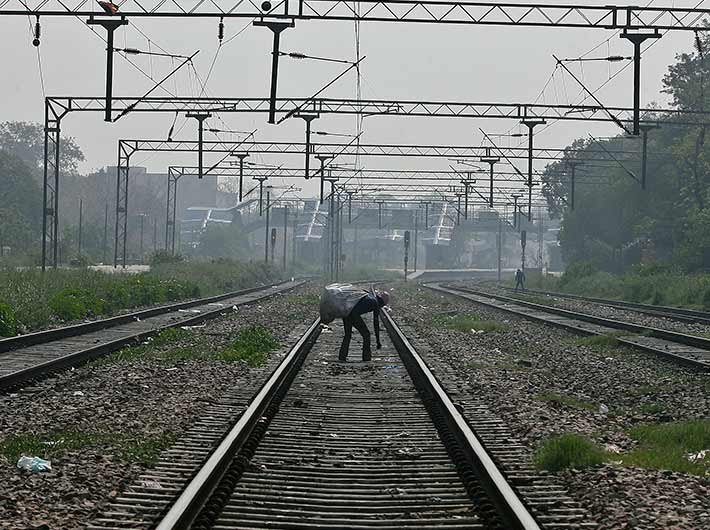A string of train accidents have led to a sharp focus on railway safety. A committee submitted its report in 2012 and it took four years for the government to accept its safety recommendations
Three horrific train accidents have taken place in quick succession. The latest accident took place on January 21, when the Hirakhand Express was derailed in Vizianagaram district of Andhra Pradesh, killing 40 people.
This was the third major railway accident in little over two months. On November 20, 14 coaches of Indore-Patna Express derailed at Pukhrayan near Kanpur, leaving at least 145 people dead. A month later, 50 passengers were killed when the Ajmer-Sealdah express derailed.
Governance Now found that in 2011, a high level safety review committee led by Dr Anil Kakodkar was constituted to go deep into the causes of rail mishaps and bring out safety recommendations to ensure accident-free operations. The committee submitted the report on February 17, 2012. However, the files kept gathering dust till February, 2016 when it was finally accepted by the government to implement its suggestions.
The financial implication of the Anil Kakodkar report is Rs 20,000 crore annually for five years, i.e. the railways would require at least Rs 1.20 lakh crore towards safety recommendations’ implementation for a period of five years.
The 160-page-committee report came out with 106 recommendations covering aspects like safety issues, upgradation of signaling and telecommunications, recruitment of safety staff, plugging the shortage of critical safety spares, removal of encroachments and elimination of unmanned crossings. Out of 106 recommendations, 68 were fully accepted by the ministry while 19 were partially accepted. The ministry did not accept remaining 19 suggestions. So far, only 27 recommendations of the panel have been implemented till November 22, 2016.
A few of the recommendations include filling of safety wing vacancies, introduction of video camera based data logging, storage and display in monitoring room of train examiners cabin, eviction of encroachments, and manufacturing of German LHB coaches in all the coach manufacturing units and phasing out of ICF design carriages among others. Senior officials, in an interaction with Governance Now, admit that the openings in the safety department can’t be filled overnight. They also said estimated that it would take at least five to six years to completely eliminate unmanned level crossings across the country which is one of the main reasons for rail accidents.
The railway ministry wrote to the finance ministry on November 18, 2016 to sanction a non-lapsable ‘Rastriya Rail Sanraksha Kosh’ of Rs 1,19,183 crores. Railway ministry has planned to spend Rs 1,11,683 crore towards safety improvement. The safety related works include track maintenance, bridge rehabilitation, level crossing work, replacement and improvement of signaling system, improvement and upgradation of rolling stock, replacement of electrical assets and human resource development.
Further, the railways needs Rs 43,444 crore for elimination of unmanned level crossings, construction of road over bridges, road under bridges and low height subways to prevent accidents at level crossings. For track works including the maintenance, the ministry requires Rs 30,032 crore.
In the 2015-16 budget speech, Suresh Prabhu had mentioned that over the next five years, railways envisages an investment of Rs 8.5 lakh crore including a whopping Rs 1.27 lakh crore for safety works including track renewal, bridge work, signaling and telecom.
(Read the full report on railway safety in Governance Now’s forthcoming February 1-15 issue)

